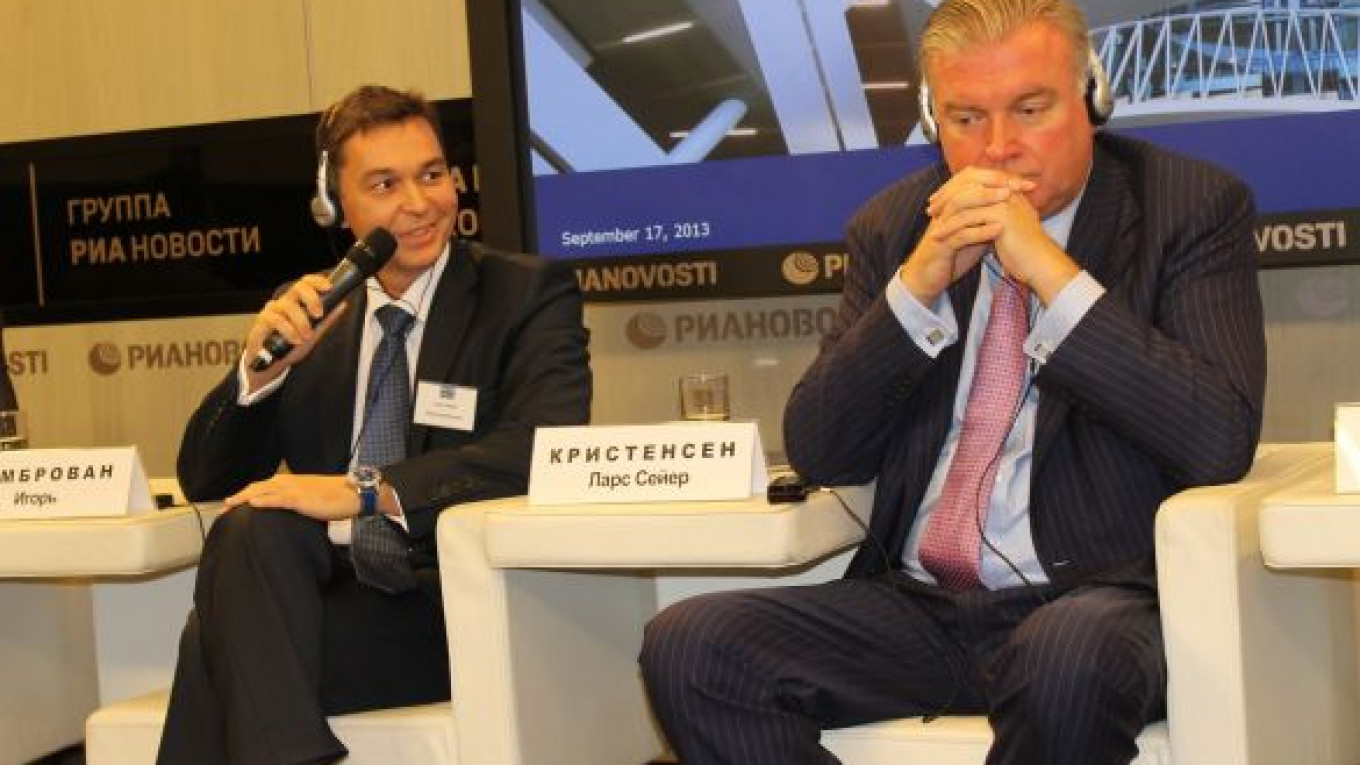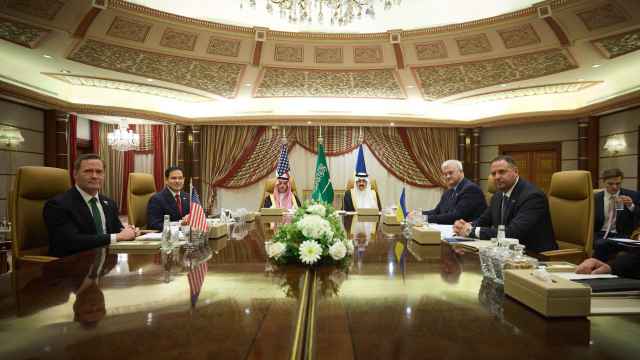The eurozone is doomed and its dysfunctional model has no chance of recovery with the euro in its current form, creating problems for Russia and other world economies, Lars Christensen, chief executive of European investment bank Saxo Bank, said at a Moscow press conference on Tuesday.
Underperforming eurozone countries create a massive drain on the world economy, he said. “This is a problem not just for Russia but for everybody else,” Christensen added. Saxo bank has been operating in Russia since 2011.
According to the European Commission website, the European Union is the leading trade partner of Russian, accounting for about 50 percent of the country’s exports and imports and 75 percent of foreign direct investments in Russia. In 2012, Russia’s export volume to the EU made up mostly of raw materials and machinery, totaled 213.3 billion euros ($285 billion) and import 123.2 billion euros.
“The euro is doomed. It took decades to get it in place and unfortunately it will have a very long time to get rid of it again,” he said.
While an immediate dissolution of the common european currency has a potential to be catastrophic for some economies and political leaders who invested their careers in it, the eurozone project had “fundamental construction” problems from the very start, Christensen added.
“These 17 countries [which are part of the eurozone] have to act as if they were a one nation state, [where] you can have some solidarity with areas that are underperforming and accept substantial transfer payments [to support them]. [But] you can’t expect 17 countries to have that kind of solidarity toward each other,” he added.
“[Greece] hasn’t done anything different from what they did before they joined the eurozone. Greece is not the problem for euro. Euro is the problem for Greece.”
Igor Dombrovan, chief operations officer of Saxo Bank in Moscow, said he did not share this view.
“I am more optimistic,” he said. “Yes, it was a risky exercise from the very start, which proved difficult for some economies. But for the region’s development as a whole, it was positive, because we are learning how to create a strategic environment,” he added.
In April this year, President Vladimir Putin stated Russia’s confidence in the euro. “I would like to say it outright: Yes, we trust the euro,” he said in an interview with a German broadcaster ARD.
Putin said eurozone countries were moving in the right direction in handling the current crisis, Reuters reported.
Christensen does not share the president’s optimism, but sees some positive scenarios.
“We have a lot of things in our [financial] models indicating that we are closing in on a high in this mini recovery that we’ve seen and economies may slip back to recession in 2014. And that is going to be bad news for everyone,” he said.
Saxo Bank’s CEO said that with a right set of reforms, open competition and foreign investment, Russia would have a bright future. With gross domestic product growth being higher than in most European countries, Russia has been a little undervalued compared to other markets, he added.The role of Russian government, as a regulator, is to create transparent financial instruments to help investors estimate the risks associated with investing in the Russian economy, Dombrovan said.
Contact the author at g.moukine@imedia.ru
A Message from The Moscow Times:
Dear readers,
We are facing unprecedented challenges. Russia's Prosecutor General's Office has designated The Moscow Times as an "undesirable" organization, criminalizing our work and putting our staff at risk of prosecution. This follows our earlier unjust labeling as a "foreign agent."
These actions are direct attempts to silence independent journalism in Russia. The authorities claim our work "discredits the decisions of the Russian leadership." We see things differently: we strive to provide accurate, unbiased reporting on Russia.
We, the journalists of The Moscow Times, refuse to be silenced. But to continue our work, we need your help.
Your support, no matter how small, makes a world of difference. If you can, please support us monthly starting from just $2. It's quick to set up, and every contribution makes a significant impact.
By supporting The Moscow Times, you're defending open, independent journalism in the face of repression. Thank you for standing with us.
Remind me later.






